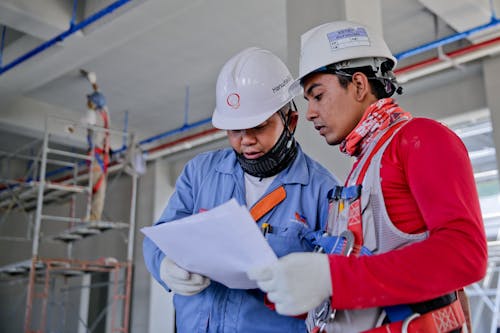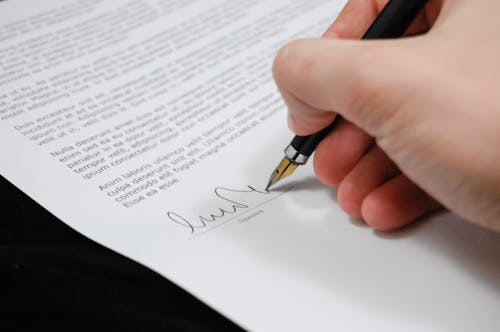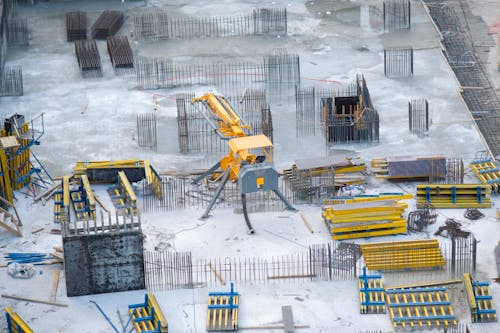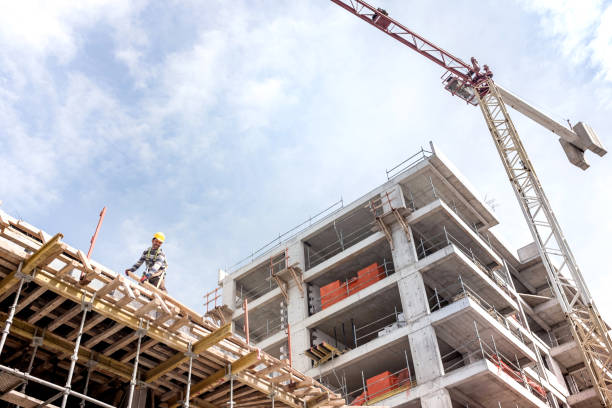What Are Home Inspectors Not Allowed To Do, As home inspectors, we are trained in detecting several things, but what we can’t do is give you an opinion about whether or not the house you own is enough space for your family.
This is because residential real estate agents hire us to perform a thorough inspection of the property they represent, which usually includes looking at the roof, the exterior walls, and the general structure and condition of the interior. However, they also ask us if there are any signs that the house is lacking adequate living space.
Agents will typically ask this question when sellers put forward their offer, so they can determine if it’s worth their while to make an offer or not. This is very important as it could win or lose them the sale!
Unfortunately, some sellers feel really bad about asking buyers how much space they need, so they never make such an offer. If this ever happens to you as a homeowner, then you’re out of luck! You’ll have to look elsewhere to live.
Give opinions on home conditions

As home inspectors, we are allowed to give our opinions about certain properties, but only if you ask us for one. That is why it is important to be aware of what things could potentially set off a warning signal.
We cannot tell you whether or not something is wrong with your house unless you ask us – so make sure you do!
By having an inspector perform a routine visual inspection, you will also get their thoughts on how well the property appears to be maintained.
It’s very common for buyers to want some additional information past what they have already seen online or through other sources, such as a real estate agent. They may be looking to compare prices as well, which can lead to more questions.
Make recommendations on home repairs

As mentioned before, an inspector can only give you information about your house. They are not allowed to tell you whether or not you should do things like remodel your kitchen or hire them to do things for you such as repair your roof.
That would be going beyond their scope of work and cost-‐effective inspectors will never do that.
They can however, suggest good and bad ways to improve your home by offering tips and tricks they have learned through the process. For example, she might suggest replacing your old windows with new energy efficient ones or suggesting that you consider adding an outdoor fireplace to enjoy in the warmer seasons.
These types of improvements can be done easily without too much expense so it is important to know what changes make sense for your home.
Identify defects
As home inspectors, we are legally permitted to perform several tasks while inspecting a house. We may look through windows for visible contents or evidence of use, check the temperature in rooms, measure humidity, test water supplies, determine if smoke alarms work, and so on.
But one thing that we are not allowed to do is enter any part of the house without permission from the homeowner or legal representative. This includes going into a room, opening doors, looking under furniture, etc.
We also cannot take pictures or make notes about anything inside the house unless we have your consent as an inspector or you as the owner give us express written authorization to do so.
Why this rule
You never know what kind of personal information might be stored in a picture, such as medical records, financial documents, or even something embarrassing like children’s photos. If someone has given you their permission to photograph their home, then you are free to do it, but only within the bounds of the law.
Inspecting properties can be very stressful for people. Even just thinking about all the things that could go wrong makes some feel uncomfortable.
As home inspectors, we owe it to our clients to at least address these fears head-on when they ask us whether there were any issues during the inspection process.
By limiting ourselves to what we are legally able to do, we keep control over our job and avoid creating more stress than needed.
Provide advice on how to fix the home
As home inspectors, we are not allowed to give any tips or tricks for improving or changing anything about a house. We are also not allowed to suggest improvements or changes that could potentially cost money.
That is, unless you work for an architect or builder who uses your recommendations in their business, then it’s totally okay. But as homeowners, we should be careful what tips we share, even if they don’t involve charging our customers!
What Are Home Inspectors Not Allowed To Do, It can hurt your image as an inspector when people see you giving unsolicited advice about things like replacing windows or taping seams of drywall. If you notice someone looking at you with a confused expression, try to say something neutral like “I didn’t realize they offered that service here.
Give an overall rating
As mentioned earlier, home inspection reports are not allowed to contain any opinions about the property. They are only supposed to include facts that can be confirmed either by the inspector or through research elsewhere.
Overall ratings are definitely not permitted in home inspections. These types of comments go beyond what is legally required for the report. In fact, some states even require your readers to disregard the comment if they find it while researching their own house!
It is important to remember that these statements may affect how much you pay for your home. An opinionated review could describe features as “great” or “lackluster,” which would influence your buying decision. Or it might call out things like poor workmanship, which could scare away potential buyers.
Making too many assumptions will cost you money, so make sure to do your homework before agreeing to purchase. And once you have found the right home, do not let anyone stop you from being confident in its quality.
As with any type of research, ask others for recommendations and check out forums and reviews online. If someone has hired this company previously, then chances are they will talk about them. Read everything very carefully though, no one wants fake reviews.
Generalizations such as good or bad, strong or weak are acceptable because they cannot clearly identify whether the owner was lucky or not with his/her choice of home.
Stay within code

As home inspectors, we are not allowed to violate any codes when inspecting a property. This includes things like breaking window glass or kicking in doors to look inside.
We have to be careful about what we do during an inspection because we could be held liable for violations of the law! For example, if we notice damage caused by a broken window, then we must report it as such so that someone can fix it before the house is sold or rented.
Breaking windows for other reasons than legal inspections is called criminal mischief, which is a crime. People who break into houses often try to hide evidence, so there’s always risk of us finding something illegal.
Home inspector training courses usually teach students how to be professional and ethical, but sometimes student instructors will say or do things that contradict this. Make sure you are looking out for potential bad actors at your workplace.
Hi guys! I’m Emma, Founder of Em And Da Monkeys. My passion is teaching others the art of making everyday materials and items seem expensive – an inspiration factor if you will.
Do not break any laws

As home inspectors, we are also legally obligated to watch your house being broken into or robbed. We cannot ignore this legal obligation by passing it off as nothing important, nor can we fail to report it to police.
If an inspector is called out to check on suspicious activity at a house they have just completed an inspection of, they must notify law enforcement immediately.
The same goes for when there has been a crime committed in close proximity to one of their offices or homes.
Do not enter any hazardous conditions

What Are Home Inspectors Not Allowed To Do, Another thing that most people do not know is that home inspectors are not allowed to go into any kind of dangerous or potentially deadly situation while performing their job.
If this rule was broken, then not only would the inspector be risking his or her own safety, but they could also put others in danger as well. For example, if an inspector must open a door, he or she may have to check for heavy dust which can indicate possible water damage.
By opening the door, the inspector would risk being hit by debris or liquid coming out, so they are usually given special equipment to use when doing this. Unfortunately, some individuals cannot afford this equipment, so they should not be looking for proof of moisture inside!
This goes the same way for checking pipes and appliances. An inspector might have to take a look at something very unsafely, and even if they were able to get past what they were inspecting, it could still hurt someone else later.




